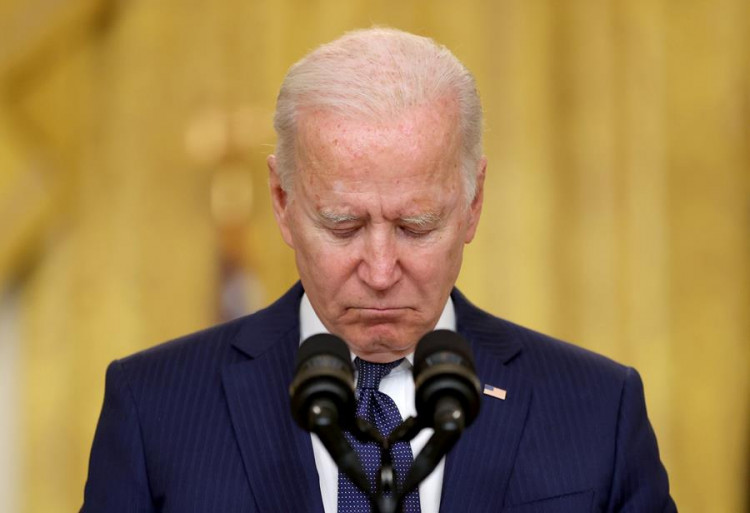The U.S. Supreme Court appears poised to uphold the Biden administration's regulation of ghost gun kits, signaling a significant victory for proponents of tighter firearm controls. During oral arguments, both liberal and some conservative justices expressed skepticism about arguments against the restrictions, indicating that the government's case might secure enough votes to keep the rule in place.
Ghost guns are untraceable firearms assembled from kits that do not have serial numbers, making them difficult for law enforcement to track. The Bureau of Alcohol, Tobacco, Firearms and Explosives (ATF) issued a rule in 2022 requiring these kits to be regulated like traditional firearms, meaning they must be marked with serial numbers, licensed for sale, and subject to background checks. The Biden administration contends that these measures are essential to address a surge in crimes involving ghost guns.
Chief Justice John Roberts and Justice Amy Coney Barrett, two key conservative voices, joined the three liberal justices in questioning the arguments presented by the challengers. Roberts dismissed the notion that hobbyists should be allowed to build firearms in their spare time without regulatory oversight. "Well, I mean drilling a hole or two, I would think, doesn't give the same sort of reward that you get from working on your car on the weekends," he said, downplaying the idea that ghost gun kits serve a similar purpose as other hobby projects.
Justice Barrett also challenged the arguments of Peter Patterson, the attorney representing the ghost gun manufacturers, suggesting his interpretation of the Gun Control Act was flawed. Barrett emphasized that although ghost gun kits were not specifically mentioned in the original law, the Act was intended to regulate any parts that could be readily converted into a firearm. She compared ghost gun kits to a meal kit that could be easily assembled, reinforcing the idea that the kits were indeed covered by existing firearm regulations.
The Supreme Court's decision to let the regulation remain in effect last year, in a 5-4 vote, was seen as a preliminary indication of how they might rule. During this vote, both Roberts and Barrett joined the liberal justices to allow the rule to stand while litigation continued. Their questions during the recent oral arguments suggest they may be inclined to uphold the regulation in a more definitive ruling.
Solicitor General Elizabeth Prelogar defended the regulation, arguing that ghost gun kits have no other practical use beyond being assembled into a functional firearm. "The reason why you want a ghost gun is specifically because it's unserialized and can't be traced," Prelogar stated, underscoring the public safety concerns posed by these weapons. She further noted that after the ATF restrictions went into effect, the market for ghost guns "essentially collapsed," indicating that the primary users were indeed those seeking untraceable firearms.
However, not all conservative justices were fully convinced. Justice Samuel Alito expressed doubts about the government's definition of what constitutes a firearm, drawing analogies to everyday items. He held up a pen and notepad during the arguments, asking if they could be considered a grocery list, to illustrate his view that a kit of parts does not necessarily equate to a weapon.
Despite Alito's skepticism, Justice Neil Gorsuch, who had previously voted against allowing the regulation to take effect, appeared more open to the government's argument. His questions suggested a potential shift in perspective, raising the possibility that he might support at least some aspects of the ATF's rule.
The case does not directly address Second Amendment rights but focuses on the interpretation of the Gun Control Act and whether the ATF exceeded its authority. Legal experts argue that the decision could have far-reaching implications for how firearms are regulated in the U.S. If the court sides with the Biden administration, it could set a precedent for the federal government's ability to regulate gun parts and components more broadly.
The arguments took an unusual turn when the justices used analogies to everyday activities to debate the nature of ghost gun kits. Justice Alito's grocery list example and Justice Barrett's reference to meal kits from Hello Fresh were aimed at questioning how complete a set of parts must be to be considered a firearm under the law. These analogies highlighted the justices' struggle with defining the scope of federal regulations without overstepping the limits set by Congress.
The Biden administration has framed the regulation as a crucial step in addressing a growing public safety issue. New York City, among other jurisdictions, has seen a significant rise in crimes involving ghost guns, with hundreds of these untraceable weapons seized by law enforcement. Manhattan District Attorney Alvin Bragg filed a brief in support of the regulation, underscoring the threat posed by these firearms to urban communities. "Ghost guns are a serious threat to public safety because they enable criminals to evade background checks and carry untraceable weapons," Bragg stated. The administration argues that without the regulation, law enforcement agencies will continue to face challenges in tracing and controlling the spread of these weapons.






